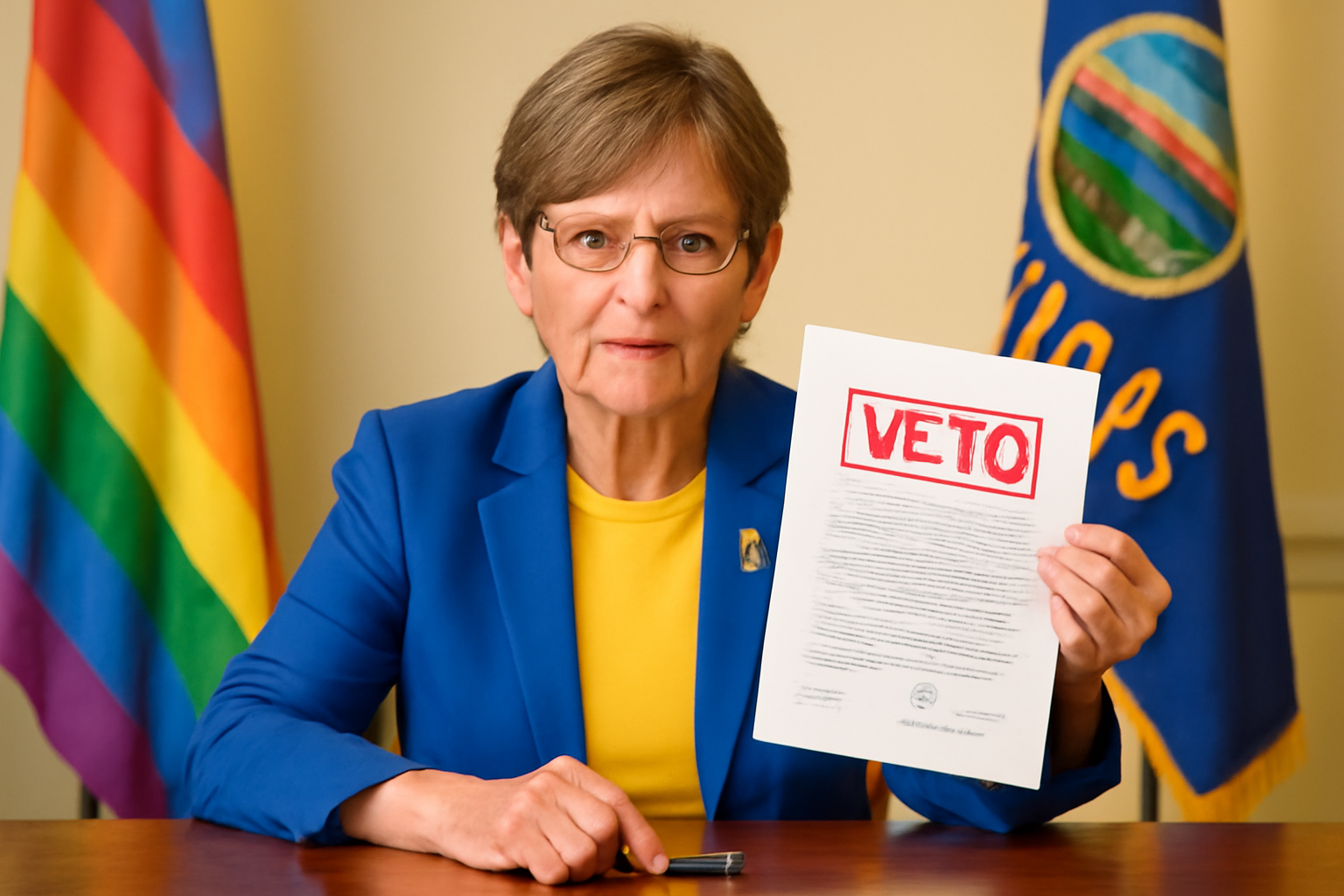
In a significant move that impacts the lives of many young individuals and their families, Kansas Governor Laura Kelly has once again exercised her veto power against a proposed bill that sought to ban gender-affirming care for minors. This decision continues to highlight Governor Kelly's commitment to protecting the rights and health of transgender youth, ensuring they have access to necessary medical care and support.
Governor Kelly, a Democrat, has consistently been an advocate for LGBTQ+ rights, and her recent veto is a testament to her dedication to maintaining these principles in the face of growing political pressure. The bill, if it had passed, would have prohibited healthcare professionals from providing gender-affirming treatments such as hormone therapy and puberty blockers to individuals under 18. Advocates for transgender rights argue that such treatments are vital for the well-being and mental health of transgender youth, as they help align their physical appearance with their gender identity.
The Importance of Gender-Affirming Care
Gender-affirming care is a crucial aspect of healthcare for transgender individuals. It encompasses a range of medical, psychological, and social interventions that support an individual in affirming their gender identity. For minors, access to these services can be life-saving, providing them with the necessary support to navigate their journey of self-identity.
Medical professionals and organizations such as the American Academy of Pediatrics and the American Medical Association have long advocated for the provision of gender-affirming care. They argue that withholding such care can lead to increased rates of depression, anxiety, and even suicide among transgender youth. Studies have shown that access to gender-affirming care significantly reduces the risk of these mental health issues.
Governor Kelly's Stance
Governor Kelly's decision to veto the bill aligns with her previous actions in support of LGBTQ+ rights. During her time in office, she has been a vocal supporter of equality and inclusion. By vetoing this bill, Kelly is sending a clear message that the state of Kansas values the health and dignity of all its residents, regardless of their gender identity.
"I believe that medical decisions should be left to individual families and their healthcare providers," Governor Kelly stated. "This legislation would have interfered with those personal decisions, and that is something I cannot support."
Reaction from the Community
The response from the LGBTQ+ community and its allies has been overwhelmingly positive. Many advocates view this as a victory not just for transgender rights in Kansas, but for the broader movement towards acceptance and equality across the nation. Organizations working to protect LGBTQ+ rights have praised Governor Kelly for her courage and leadership in standing against discriminatory legislation.
However, the governor's decision has not been without its critics. Those in favor of the bill argue that it is necessary to protect children from making irreversible decisions. Nevertheless, medical experts counter that gender-affirming treatments for minors are carefully considered and usually non-permanent, such as puberty blockers, giving individuals time to explore their gender identity.
Moving Forward
Governor Kelly's veto ensures that, for now, transgender minors in Kansas will continue to have access to gender-affirming care. However, the political landscape remains challenging, with similar legislation being introduced in other states across the country. Advocates are calling for continued vigilance and support for policies that affirm the rights of transgender individuals.
As the conversation around transgender rights and healthcare continues to evolve, it is crucial for communities to rally together in support of policies that uphold human rights and dignity. Governor Kelly’s decision is a step in the right direction, reflecting the values of compassion and understanding that are essential in fostering a more inclusive society.
Related Posts
Triumphant Trans Woman Wins Legal Battle and Inspires Others to Stand Up for Their Rights
Breaking new ground: a landmark victory in transgender rights After battling in courtrooms and enduring endless challenges, Diana Portillo, a transgender woman, has secured a monumental victory in her decade-long fight against workplace discrimination. The result? Nearly $1 million awarded in a historic settlement. But this isn't just a win on paper—it represents a powerful precedent in combati [...]
Pride Month in Latin America: Protests and Demands for Equality
**Celebrating Pride and advocating LGBTQ+ rights in Latin America** Pride Month in Latin America was a lively mix where celebration met activism. Communities united, not just throwing a party but making a stand—demanding equality and pushing governments toward better protection and rights recognition. Throughout Latin America, pride events erupted in marches and cultural displays, each with a c [...]
Transgender Erasure Actions Implemented by National Park Service
```html Trump administration's impact on national park service and transgender recognition The Trump administration made notable moves in undermining transgender representation, which included directing agencies like National Park Service not include "T" and "Q" when they refered “LGBTQ” in any official communication. This move seems part a broader plan by this administration aimed at reducin [...]